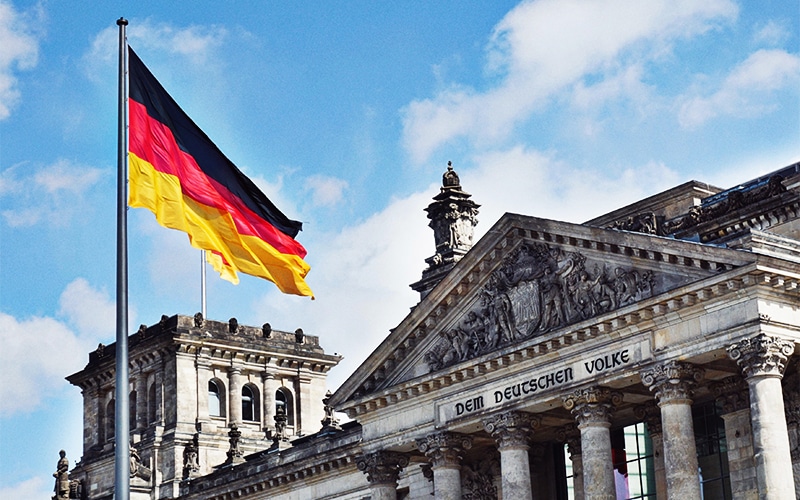In Brief:
- The upcoming German government published a coalition agreement that cites crypto and blockchain technology.
- The center-left Social Democrats (SPD), the Green Party, and the right-friendly Free Democrats(FDP) constitute the “traffic light” coalition government.
- One of the most crucial parts of the agreement is the provision allowing the issuance of tokenized stocks.
The new German government presented a coalition agreement that mentions cryptocurrencies and blockchain technology among the foundations that will assist the country’s development in the next four years.
The center-left Social Democrats (SPD), the Green Party, and the right-friendly Free Democrats(FDP) constitute the so-called “traffic light” coalition government.
Traditional finance and “innovative business models” should compete on an equal footing, according to the agreement.
“We are making European financial market supervisory law fit for digitization and for complex group structures in order to ensure holistic and risk-adequate supervision of new business models,” the agreement reads.
As stated in the document, the coalition demands a new “dynamic in regard to the potential and hazards posed by new financial technologies,” such as crypto assets and blockchain firms.
The agreement includes initiatives such as phasing out coal use by 2030 and pledging to 80% renewable energy, raising the minimum wage to €12 (US$13.58), and legalizing the controlled sale of cannabis.
The European Union supervisory authority should not only look after the traditional financial sector but also prevent the exploitation of crypto values for money laundering and terrorist financing, according to the document.
The incoming government promised to build a digital state and to develop new cryptocurrency and blockchain strategies.
“We advocate a level playing field with equal competitive conditions within the [European Union], between traditional and innovative business models and towards large digital companies,” the 177-page agreement reads.
The provision to allow the issue of tokenized stocks is one of the most important parts of the agreement.
The new government additionally decided that Germany should become one of Europe’s leading places for FinTech and InsurTech platforms, as well as neo-brokers—consumer-focused finance apps for stock trading and other investment possibilities.
The government also stated that it plans to constructively assist the process of developing a digital euro as a supplement to cash, which is accessible to everyone as legal tender in Europe and can be used in general.
Whatever new approach to digital assets in Germany is expected to be in line with the European Union’s overall policies.
The Regulation on Markets in Crypto Assets (MiCA) and the Digital Operational Resilience Act were both approved by the European Council as proposals to regulate cryptocurrencies (DORA).
The European Council stated, “The purpose of MiCA is to create a regulatory framework for the crypto-assets market that supports innovation and draws on the potential of crypto-assets in a way that preserves financial stability and protects investors.”
The proposed regulations have yet to be approved, but they are expected to become the EU’s standard regulatory framework, which Germany will have to follow in some manner.
Earlier in July, Germany adopted new legislation that enabled managers of institutional investment funds known as Spezialfond to allocate up to 20% of their funds to cryptocurrencies.






